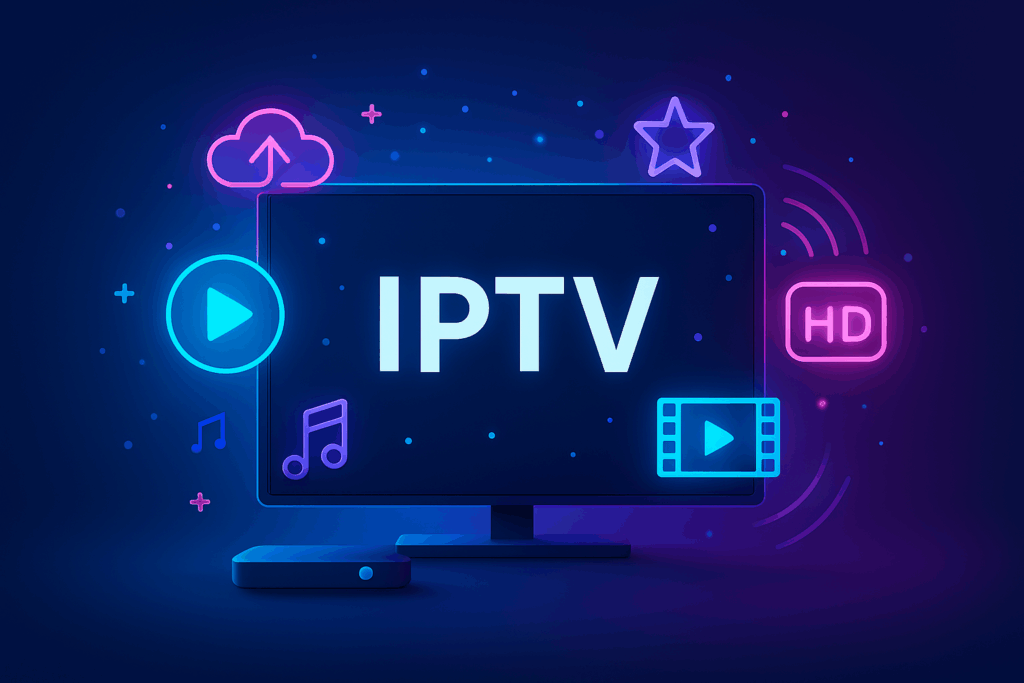What Is the Top Rated IPTV Service ?

When selecting a top rated IPTV service, it’s important to focus on a few key factors to ensure the best experience. Start by checking the channel lineup—make sure it covers your favorite genres so you get a complete entertainment package. Next, assess the streaming performance: look for low latency, smooth playback with minimal buffering, and compatibility with HD or 4K resolution.
Pricing is another crucial element, so compare subscription plans for transparency and flexibility. Many providers offer both monthly and annual options to suit different viewing habits and budgets. For viewers in America, or Canada, IPTV Canada is often recommended as a trusted provider, offering a wide range of channels and consistently reliable streaming quality.
What Is IPTV and Why Should You Use It ?
Now, IPTV (Internet Protocol Television) has become one of the most popular ways to enjoy television. Instead of relying on cable or satellite, IPTV delivers channels and on-demand content through the internet—giving you more flexibility, higher picture quality, and seamless access on multiple devices.
Whether you prefer streaming on a smart TV, smartphone, or tablet, IPTV adapts perfectly to your viewing habits. Keep reading to learn how IPTV works, how to choose the right provider, and the best tips to maximize the value of your subscription.
What Are the Key Advantages of IPTV ?
With IPTV, you can stream live TV, on-demand movies, and special events directly over the internet. Forget rigid schedules—you decide what to watch and when to watch it.
The main advantages of IPTV include:
- Instant access to your favorite shows, films, and sports on demand.
- Superior streaming quality in HD and even 4K resolution.
- Interactive controls such as pause, rewind, and replay.
- Seamless compatibility with smart TVs, smartphones, tablets, and more.
By choosing IPTV, your entertainment becomes more flexible, interactive, and perfectly tailored to your lifestyle.
How Do I Check Streaming Quality and Performance on IPTV ?
| Performance Factor | What to Look For in an IPTV Service |
| Streaming Quality | Support for 4K resolution and adaptive bitrate streaming that adjusts to your internet speed. |
| Uptime Reliability | Minimum 99.9% uptime, achieved through redundant servers and global CDN infrastructure. |
| Buffering Prevention | Advanced caching mechanisms and optimized protocols to eliminate streaming interruptions. |
| Compression Technology | Platforms using H.265/HEVC codecs for superior video quality with lower bandwidth consumption. |
| Real-Time Monitoring | Systems that detect and fix bottlenecks before they affect performance, ensuring smooth viewing. |
How Do IPTV Pricing Plans Work ?
When evaluating IPTV services, you’ll encounter diverse pricing structures ranging from monthly rolling contracts to discounted annual commitments, with costs typically spanning $10-50 per month depending on channel count and feature sets.
Understanding subscription tiers helps you assess cost effectiveness against your viewing requirements.
Key pricing considerations include:
- Basic packages ($10-20): Limited channels, SD quality, single device streaming
- Standard plans ($20-35): HD content, 2-3 simultaneous connections, expanded libraries
- Premium tiers ($35-50): 4K streaming, unlimited devices, sports packages, VOD catalogs
- Hidden costs: Setup fees, equipment rentals, early termination penalties
Compare value propositions carefully before committing.
Device Compatibility and User Interface Experience
Technical excellence means nothing if you can’t access content seamlessly across your preferred devices. You’ll find top-rated IPTV services support Smart TVs, Android/iOS mobile devices, streaming boxes, and web browsers through dedicated apps or M3U playlist compatibility.
The user interface directly impacts your viewing experience—premium providers offer intuitive EPG layouts, customizable channel lists, and responsive search functions. Look for services providing consistent UI design across platforms, ensuring you don’t relearn navigation when switching devices.
Advanced features like multi-screen support, parental controls, and personalized recommendations distinguish market leaders. Cross-platform synchronization lets you resume content seamlessly between device compatibility options.
Frequently Asked Questions
Is IPTV Legal to Use in My Country?
You’ll need to check your country’s specific IPTV regulations, as legality varies globally. Licensed services with proper IPTV licensing agreements are typically legal, while unlicensed streams violating copyright aren’t. Research your local broadcasting laws for compliance.
What Internet Speed Do I Need for IPTV Streaming?
You’ll need minimum 10 Mbps for HD streaming requirements, while 4K demands 25+ Mbps. Bandwidth considerations include simultaneous streams and network congestion. For optimal performance, aim for 50% above minimum speeds to ensure buffer-free viewing.
Can I Use VPN With IPTV Services?
Yes, you can use VPN with IPTV services. VPN advantages include bypassing geo-restrictions and enhancing IPTV security through encrypted connections. You’ll experience improved privacy protection, though slight latency increases may affect streaming performance depending on server location.
How Do I Set up IPTV on My Device?
You’ll start setting up by checking device compatibility with your chosen IPTV app. Install the provider’s application, enter your subscription credentials, configure network settings, and verify streaming protocols work correctly on your specific hardware platform.
What’s the Difference Between IPTV and Regular Cable TV?
You’ll find IPTV delivers content through internet protocols while cable uses coaxial infrastructure. IPTV typically offers lower subscription costs, customizable packages, and variable streaming quality depending on bandwidth, whereas cable provides consistent signal but limited flexibility.